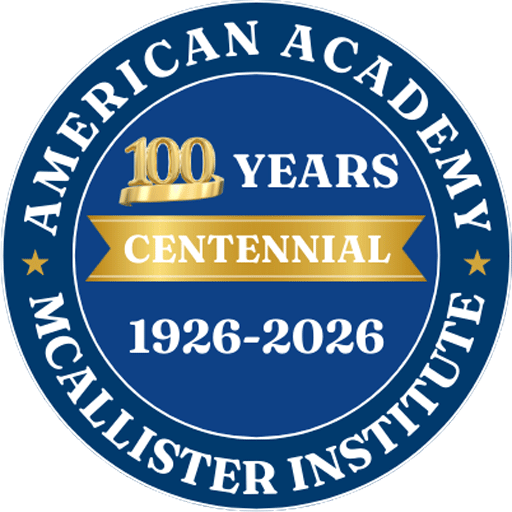
Pursuing a career in funeral science requires a mortuary science degree, but students and career-changers alike should know that the degree is only the beginning. Becoming a practicing funeral services professional also requires licensure, and each state sets its own rules and deadlines concerning licenses, including the technical training required and the ethical standards that must be upheld.
While specific licenses differ by state, funeral service professionals can follow this guide to licenses to learn more about the credentials they need to begin practicing in their field. Consult with experienced funeral services educators or the relevant state offices to learn more about the requirements in a specific state.
Why Licensure Is Required
Licensure is a necessary step toward maintaining professional funeral service standards. Funeral services, which often combine public healthcare, law, therapy, and more, require strict industry accountability. Therefore, state boards regulate the eligibility of applicants based on specific consumer protection laws, business standards, and ethical practices, which are tested through a licensing process.
In most states, licensure is required to legally operate as a funeral director, embalmer, or crematory operator. However, some states require individual licenses for these careers while others combine them. In either case, licensure maintains the industry standards that graduates learned in their mortuary science courses in their professional lives.
What Licensure Typically Requires
Funeral service licensure requires completing a mortuary science degree, up to at least an associates degree. It also requires successful completion of the National Board Exam (NBE), which will test one’s capacity to uphold professional standards, protect public health, and act according to the principles of their education and accredited training.
What Is The National Board Exam (NBE)?
The NBE is administered by the International Conference of Funeral Service Examining Boards (ICFSEB) to guarantee that individuals who hold licenses to practice funeral services act with the appropriate knowledge, professionalism, and industry ethical standards. The NBE is split into two sections: the NBE Arts and NBE Sciences.
To pass the National Board Exam, graduates must pass both sections, which requires balanced knowledge of the creative and technical aspects of mortuary science as well as experience in related clinicals.
Eligibility for the NBE relies on state requirements or graduation from an ABFSE-accredited program. This is the American Board of Funeral Service Education, the national accreditation agency for funeral services schools.
Read more about licensure requirements here or visit the site of The International Conference of Funeral Service Examining Boards.
Do States Have Specific Requirements?

Each state may have specific requirements for internships, residencies, apprenticeships, additional exams, practicums, and more to verify licensure. Many factors impact these requirements, including state laws and local demand for the positions. In each case, professionals must submit their applications and fees to the relevant state board to get the licenses they need.
Common Variations By State
To better meet state-specific requirements, funeral service students and professionals should know the many potential differences that states may enforce in their licensing processes, including, but not limited to:
- Licensing Titles: Some states require licenses for each role while others combine some licenses into “dual licenses” for multiple qualifications, such as funeral directing and embalming.
- Case Requirements: Some states may require differing numbers of case hours to become licensed for different roles. Some may require 25 hours of supervised experience while others may require 50.
- State Board Exams: Each state has its own board exams to test pre-professionals on the funeral service laws in their state, state-specific business regulations, and other local practices.
- Internship Requirements: Some states may require internships for 6 months while others may require 2 years.
- Reciprocity: Some licenses can transfer between states while others must be redone with new state boards.
These are not the only variations, which is why those considering entering into funeral service should inquire about the requirements in their state when planning their education applications.
States With Notable Licensing Differences
Not every licensure difference between states can be covered in this article, but here are some notable examples of states with licensing differences:
- California: Requires separate licenses for funeral director and embalmers, mandates an additional state-specific exam, and requires apprenticeship
- New York: Requires a dual license, including both the funeral directing and embalming parts of the National Board Exam, as well as 12 months of residency and state-specific clinical requirements
- Texas: Permits a combined license for funeral directors and embalmers but emphasizes additional coursework; additionally requires documented embalming casework and participation in arrangement conferences
- Florida: Offers multiple licensing paths for directors and embalmers, including combined licenses; some coursework allows distance learning but retains requirements for in-state clinicals
- Colorado: Does not require a license for embalming or funeral directing, offering voluntary certification
Transferring Your License: Reciprocity & Endorsement

Reciprocity allows funeral service professionals to move their licenses to other states. Not all states allow reciprocity, while others require additional exams, documentation, and further education.
By following the reciprocity and endorsement requirements in their state, funeral professionals can relocate their business or even become licensed in multiple states.
Launch Your Career As a Licensed Funeral Service Professional
Becoming a licensed funeral service professional requires completing state-specific education, exams, apprenticeships, and practical case experience. Understanding these requirements is the first step toward a meaningful and stable career in funeral service.
AAMI is a nationally recognized, premium funeral service education provider, dedicated to delivering a flexible, trusted, and career-focused academic experience. Combining rigorous academic standards with modern online and hybrid learning options, we prepare students with the compassion, technical skills, and scientific knowledge needed to excel in the field.
Take the next step in your funeral service career. Apply online or contact our team today to learn more about our programs and the licensure requirements in your state.
